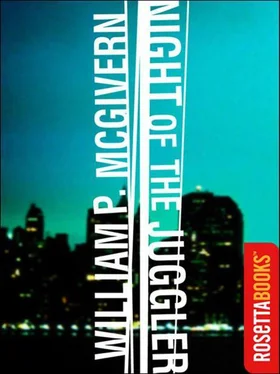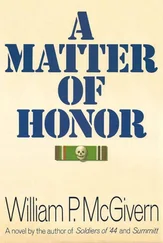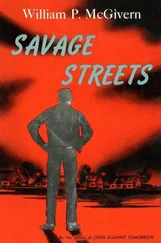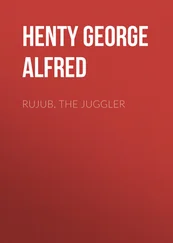William McGivern - Night of the Juggler
Здесь есть возможность читать онлайн «William McGivern - Night of the Juggler» весь текст электронной книги совершенно бесплатно (целиком полную версию без сокращений). В некоторых случаях можно слушать аудио, скачать через торрент в формате fb2 и присутствует краткое содержание. Жанр: Триллер, на английском языке. Описание произведения, (предисловие) а так же отзывы посетителей доступны на портале библиотеки ЛибКат.
- Название:Night of the Juggler
- Автор:
- Жанр:
- Год:неизвестен
- ISBN:нет данных
- Рейтинг книги:3 / 5. Голосов: 1
-
Избранное:Добавить в избранное
- Отзывы:
-
Ваша оценка:
- 60
- 1
- 2
- 3
- 4
- 5
Night of the Juggler: краткое содержание, описание и аннотация
Предлагаем к чтению аннотацию, описание, краткое содержание или предисловие (зависит от того, что написал сам автор книги «Night of the Juggler»). Если вы не нашли необходимую информацию о книге — напишите в комментариях, мы постараемся отыскать её.
Night of the Juggler — читать онлайн бесплатно полную книгу (весь текст) целиком
Ниже представлен текст книги, разбитый по страницам. Система сохранения места последней прочитанной страницы, позволяет с удобством читать онлайн бесплатно книгу «Night of the Juggler», без необходимости каждый раз заново искать на чём Вы остановились. Поставьте закладку, и сможете в любой момент перейти на страницу, на которой закончили чтение.
Интервал:
Закладка:
“But did he write anything?” the Gypsy asked her.
“He tried to, but apparently he didn’t know how , and that’s what sent him around the bend. He just exploded, knocked two of my studs down, and it takes some kind of man to do that little thing. Then he smashed the windshield of the car with his fist and ran south down Eighth Avenue. The brothers took after him, you better believe it, but he split into Central Park. That’s where they lost him.”
“Where exactly, Maybelle?”
“There’s an awful lot of hiding places between Central Park West and Harlem Lake. You’d need dogs to find anybody.”
“Your guys have anything else on his physical description?”
She frowned faintly and gently rubbed her jaw with long, tapering fingers. “Not really, Vince.” Still frowning, she ticked off items. “He was big. He was white. Leather jacket, silly-looking hat, I think they said yellow.”
“That’s important. Are you sure they said that? That he was wearing a yellow cap?”
“How the shit you expect me to be sure of anything happened six months ago?”
Tonnelli sighed. “You always had a rotten temper and brass knuckles on your tongue.”
“Hush,” she said, and her expression became thoughtful. “I remember a couple of other things. The one word that came through clear sounded like a man’s name. It was Lanny.”
“Just that. No last name?”
She shook her head. “Just Lanny. And one of my guys told me this weirdo had real small eyes and a kind of bulging forehead.”
“Your people ever see him around again?”
Samantha shook her head. “And you can believe they were looking.”
“Fix yourself another drink if you want, the bottle’s in the kitchen. Can’t say for sure, but what you got might be some help.”
As Tonnelli went to the telephone, Samantha stood with languid, slimly muscled grace and wandered toward the kitchen. Thanks a lot, Gypsy, she was thinking, realizing with an anticipation she dreaded that soon the first fires of migraine would ignite in her head. Emma and Missoura, you lazy niggers, you should have walked home through the rain. .
Lieutenant Tonnelli gave his orders to the operator at Central. “I want you to patch this description through to every precinct and division, to all boroughs. I want it to go first to Detective Sergeant Boyle at the Thirteenth and to Detective Clem Scott at the Nineteenth. Arrest on sight with drawn guns a male Caucasian, thirty to thirty-five years of age. . ”
In the neat and functional kitchen, Samantha added a mild splash of bourbon to her drink and strolled back into the living room, looking about curiously at Tonnelli’s photographs, the worn leather furniture, and the framed pictures of Tonnelli’s parents which stood on a marble mantel above the gas-log fireplace.
Tonnelli replaced the phone in its cradle and glanced appraisingly at Samantha, while the tip of his forefinger ran slowly up and down the scar that streaked the left side of his dark face. She interpreted the question in his eyes and sighed with weary finality.
“What else you want, Gypsy?”
“There’s a police sketch artist standing by at my headquarters,”
Tonnelli said. “Your studs may have spotted the bastard we call the Juggler. My question is: Will they work with a police artist and help us come up with a picture?”
In for a penny, she thought, and rubbed her forehead as the first needles of pain began their precise probings of her brain.
“Coke and Biggie’ll help out, Lieutenant,” she said. “I’ll get ‘em over to the Nineteenth.”
Because of her pain and the knowledge of what caused it, she felt a need to hurt him; her smile became cool and disparaging as she glanced about the room.
“So this is how the great Vincent Tonnelli winds up, All-State guard, honest cop, a bachelor in a two-room pad with some chairs and sofas that would go under the hammer for about fifty bucks.”
Tonnelli smiled and flicked an imaginary speck of dust from the sleeve of his cashmere jacket. “I wear it all on my back, Sam.”
She looked at him curiously. “Saving your ginzo voodoo streak, you usually walk the cool side of the street. What’s your hang-up now? Why you want to nail this bastard to the wall in strips?”
“I’m a cop. It’s my job.”
“Bull, baby, I make a living reading people, and knowing you, Gypsy, I could do it by Braille.”
“It shows then?”
“Believe it. It comes through.”
Over the years, Tonnelli had carefully studied his emotions and reactions, well aware that the intensity of his anger could escalate to a dangerous sickness, a plateau at which it might become a liability rather than an asset. He had seen that happen to cops who had lost their partners and had blamed themselves for it. They wanted victims to ease their rage and guilt. But after a certain point, considerations of innocence and involvement became irrelevant, and any victim would feed their need for revenge.
At first Tonnelli had believed his passion had been rooted in the simple violations of his turf. The murders had been committed in his village of Manhattan. It was the taboo of territory, of tribe, of temples and shrines.
But as the years passed, Tonnelli realized it was more than that.
“Say, how’s that sister of yours?” Samantha asked him. “Adela? I heard she got married and has a lot of kids.”
That was so close to his pain that her words struck him with an almost physical impact. A lot of kids, sure, he thought bitterly. Three nieces, two nephews. His only kin and blood. When he’d walk by toy stores, he’d stop and look at things he’d like to buy for his nieces and nephews but couldn’t. Big Raggedy Ann dolls, trains, windup animals that jumped through hoops, model airplanes you could fly by remote control. Hell, he’d once thought about getting a department loan and taking them all out to Disneyland. Or having them over here when he had three-day weekends. They could go to restaurants and ride around in his unmarked car and listen to the police calls. He could show them the photograph albums. The old man in his apron and the cheeses hanging from the ceiling in his market on Fulton Street. And the colored photograph of his mother without a streak of white in her hair at sixty and a temper that didn’t go with those big, soulful eyes. And never a crooked dime out of that store or in their home. He knew damn well Adela wouldn’t have any of those pictures, wouldn’t even want them.
He would never know his nieces and nephews, never hold them in his arms, and that was why he would destroy the Juggler, because that madman’s victims were surrogates for the kin he could never know and love.
“So how is she, Gypsy?”
“She’s fine, just great,” Tonnelli said quickly, too quickly. Samantha realized, and decided not to press it. She knew, in point of fact, that Adela Tonnelli was married to a Greek used-car dealer who fenced hot heaps up and down the Atlantic seaboard, and the Gypsy must know that, too, which meant he didn’t see his sister or her kids anymore.
Tonnelli wasn’t the worst of them. In fact, he was the best of them, and her need to hurt him was gone.
If there was anything good about cops, it was studs like Gypsy Tonnelli. He was straight and honest and wouldn’t mark a man for life with the butt of his gun for kicks. There was a ton of weary pain in Tonnelli, and that was a town Samantha had played, and she knew all its dirty streets and alleys. At times she was so sick and full of despair from listening to one whining loser after another that it flawed her physically; there were nights when her headaches and muscle cramps almost drove her insane, and it was pills and the bottle then, and not being able to hate Whitey enough, and the annealing but sick and unrealizable dream of being on a warm beach with clean air around her and only the sound of slowly curling waves under a big, blue sky, and maybe-and this was the sickness-having someone like little Manolo to take care of and protect, and hell, maybe even love. .
Читать дальшеИнтервал:
Закладка:
Похожие книги на «Night of the Juggler»
Представляем Вашему вниманию похожие книги на «Night of the Juggler» списком для выбора. Мы отобрали схожую по названию и смыслу литературу в надежде предоставить читателям больше вариантов отыскать новые, интересные, ещё непрочитанные произведения.
Обсуждение, отзывы о книге «Night of the Juggler» и просто собственные мнения читателей. Оставьте ваши комментарии, напишите, что Вы думаете о произведении, его смысле или главных героях. Укажите что конкретно понравилось, а что нет, и почему Вы так считаете.












